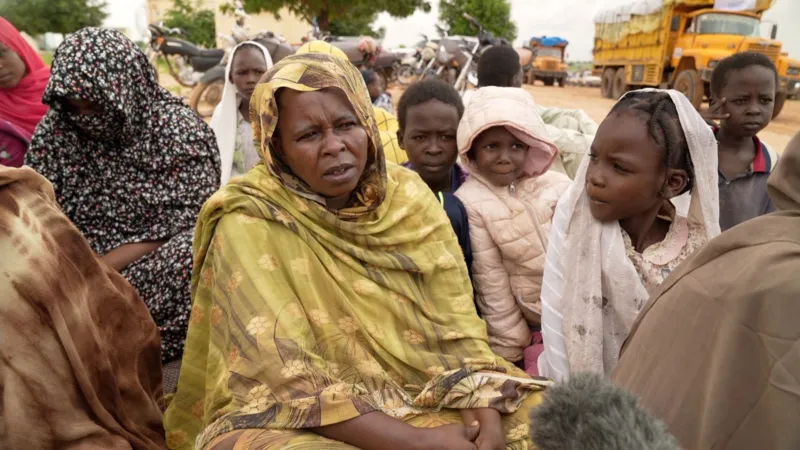‘Our Future is Over’: Families Fleeing War Face Dire Conditions
Buthaina and her six children had to travel over 300 miles to the Sudan-Chad border after running out of food and water in their hometown, el-Fasher, Sudan. Buthaina, along with many other refugees, has arrived at Adré, a crucial crossing point. They have nothing left and are now living in makeshift camps with minimal supplies.
Sudan has been torn apart by civil war since April last year, involving fierce fighting between the army and the Rapid Support Forces (RSF). This conflict has led to thousands of deaths, displacements, and severe shortages of food. There are warnings that Sudan might face the worst famine globally if more aid doesn’t arrive soon.
At the Adré border, which had been closed for months but reopened recently, refugees are desperately seeking water and aid. The area has become a symbol of the ongoing humanitarian crisis, with many suffering from disease due to poor shelter conditions and heavy rains.
The UN’s World Food Programme (WFP) has been trying to get aid into Sudan, but the delivery of food has been severely hindered by conflict, with both sides accused of blocking or stealing aid. The WFP and other organizations have been pushing for more help as the situation worsens.
In Port Sudan, the main hub for aid, refugees share heartbreaking stories of loss and abuse. Women recount severe trauma from RSF prisons, while families struggle to cope with the absence of loved ones who stayed behind.
UN officials, including Amina Mohamed, are urging the international community to focus on Sudan amid global attention on other crises. They stress that without increased support, the humanitarian situation will continue to deteriorate, with many more lives at risk.
The BBC, reporting from Sudan, highlights the urgent need for global attention and aid to address the severe crisis unfolding in the region.
https://www.bbc.com/news/articles/cewlrxrk5p5o

